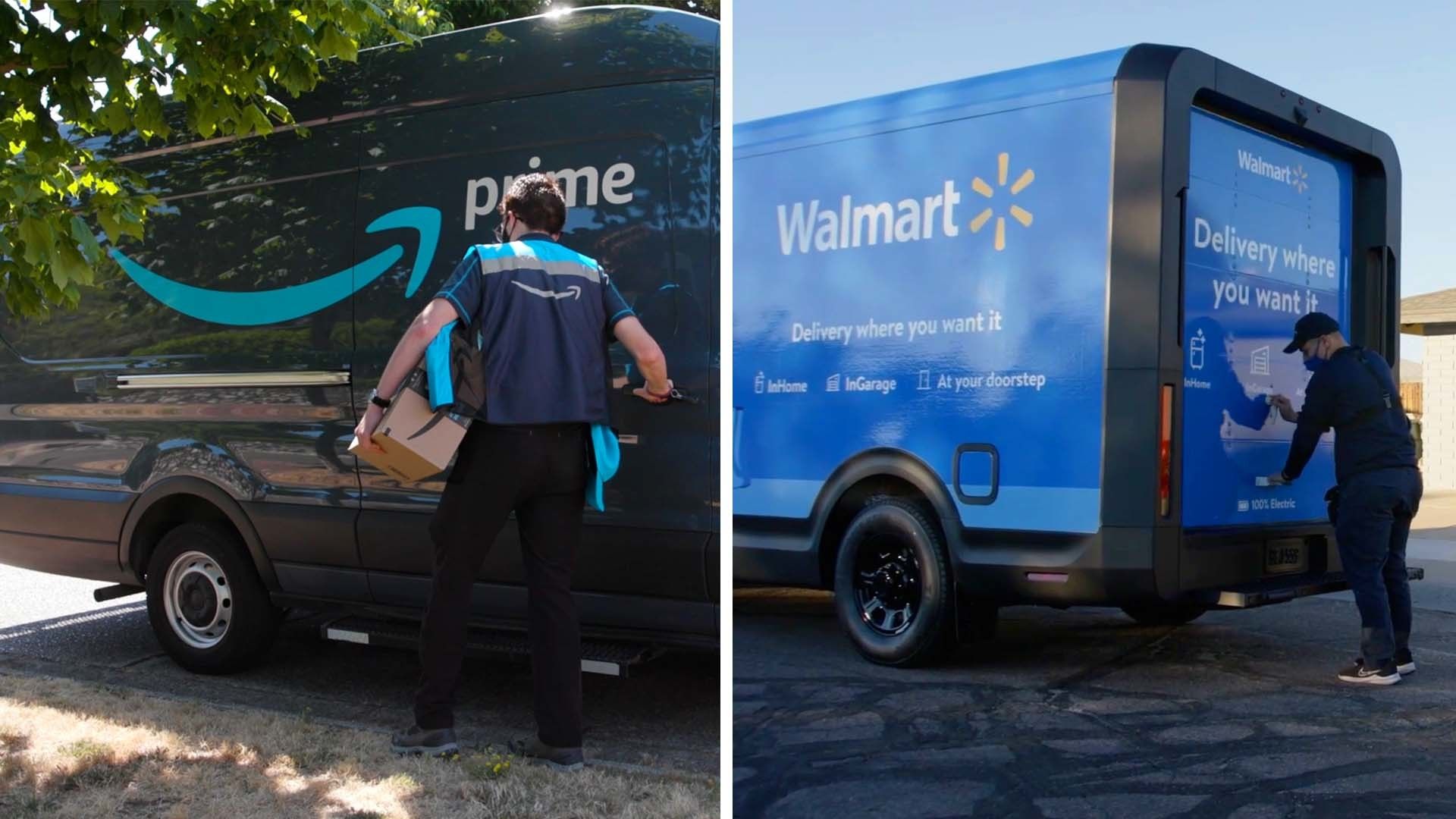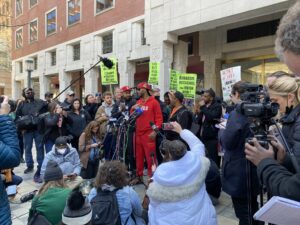America’s largest retailers like Walmart, Kroger and Amazon receive big price discounts on almost every product they buy from manufacturers—and in doing so, they’re often probably violating federal law.
The Robinson-Patman Act, a New Deal era law, bans large retailers from receiving discounts that are withheld from smaller competitors. Almost everyone involved agrees that this happens, but it doesn’t matter, because the government hasn’t really enforced the law since the late 1970s.
The discounts in question—referred to as ‘trade’ in the industry—are a significant part of the American retail landscape. Essentially, manufacturers are expected to provide retailers with an allotment of money to help sell products. Manufacturers don’t have much formal control over how this money is spent; retailers can take the bucket of money to offer lower prices, fund sales promotions or pad their bottom lines. But if you bought something at a store today, trade likely determined the price you paid, where it was located on the shelf, and if it was on sale.
According to federal law, manufacturers should offer the same level of trade to each retailer—say 10 percent on everything a retailer buys. Over time, as major retailers became more powerful, they demanded more and more trade money, giving them larger and larger discounts than their smaller competitors. Manufacturers have mostly acquiesced.
The incentive for retailers to ignore Robinson-Patman is clear: the less retailers pay for a product, the cheaper they can sell it to a consumer. The cheaper they can sell it, the more traffic they can drive to their stores. More traffic means expansion. It’s not exactly particle physics, but it’s a proven business model. Sam Walton used this formula at Walmart; he’s been dead for thirty years and his heirs currently rank 11, 12, and 13th on Forbes’s richest Americans list.
But it takes two to tango. For manufacturers, the incentives to ignore federal law are a bit more complicated—and they don’t have much of a choice because major retailers hold the power in the relationship. Manufacturers actually bring in former FBI hostage negotiators to coach the people responsible for these negotiations. But if structured correctly, trade can be incredibly profitable for both manufacturers and major retailers. Moreover, major manufacturing brands use trade as a way to block competition. It is typically the second largest expense on a firm’s income statement, behind only the cost of manufacturing the good itself. For a billion-dollar company and its vast scale, it is the cost of doing business. For a start-up, it can mean not making payroll.
Again, a large portion of this billion-dollar segment of our economy is probably illegal. The lack of enforcement becomes a political choice. It amounts to a massive subsidy for major retailers, which allows them to offer lower prices than smaller competitors. But until recently, no one complained too loudly because it was efficient; the consequences for society be damned. Rural main streets were decimated. Manufacturers went overseas, chasing low-wage labor and the promise of massive orders from major retailers. Small business owners moaned that they’re paying more for the same product and becoming less competitive—but few people in power paid any attention.
That was until last week.
In a far-reaching speech, newly appointed FTC Commissioner Alvaro Bedoya outlined the agency’s plan to revive the Robinson-Patman Act. Bedoya, previously the founding director of the Center on Privacy & Technology at Georgetown University, spent the time between his nomination and confirmation “reading antitrust treatises cover to cover.” The experience left him questioning the current regulatory approach to antitrust.
Before the Biden administration, the FTC focused most antitrust actions on the concept of efficiency, which manifested as low consumer prices. If it could be shown that a merger, or a business action, would save people money, the government would allow it. But it turns out that this approach is not backed up by any actual law. It was imagined out of thin air. “If efficiency is so important,” Commissioner Bedoya asked at the Midwest Forum on Fair Markets, “then why doesn’t that word, ‘efficiency,’ appear anywhere in the antitrust statutes that Congress actually wrote and passed?”
This is compelling. The ideology regulating a generation of American commerce isn’t consistent with the actual law. Bedoya added himself to a growing list of academics, activists, and regulators, including FTC Chair Lina Kahn, who believe fairness is at the heart of American antitrust. The record of legislative and enforcement actions backs up their claim. Over sixty years, Congress passed five different laws that “demanded fairness for small businesses.” During one four-year period in the 1960s, the FTC kept big retailers and manufacturers in check by bringing over 500 separate Robinson-Patman cases.
So what happened? How did fairness fall out of favor with regulators? If you were looking to pinpoint when this exactly happened, a 1978 FTC report uncovered by Brian Callaci and Sandeep Vaheesan of the Open Markets Institute is a good place to start. That report said the Robinson-Patman Act was based on “questionable economic assumptions prevalent in the 1930s.” Shortly after, the agency deprioritized enforcement. “Since that time,” Callaci and Vaheesan conclude, “the law has come under withering attack.”
The most debilitating attack has probably been non-enforcement. The last time the government brought a case, Walmart had 1,800 stores and $50 billion in annual sales. In 2021, with Robinson-Patman no longer enforced, the Arkansas-based retailer operates 5,335 locations and records U.S. sales of nearly $370 billion. It’s hard not to see the connection.
The rise of Walmart and other major national chain stores marked the beginning of something new for manufacturers. The lack of enforcement created a self-reinforcing cycle. Super retailers demanded and received more trade dollars, which allowed them to lower prices and drive out competition. Sure, some manufacturers consolidated and pushed back against the additional demands, but with the looming threat of private labels (brands owned by major retailers), the strategy was somewhat limited in its upside. If manufacturers refused to pay more, retailers would simply replace their products with ones they produced.
So manufacturers decided if retailers were going to make bigger demands, they might as well influence how the money was spent. There’s still the original legal bucket of trade offered to each retailer–which the retailer controls. But now, many manufacturers offer an additional bucket of money only to retailers who follow their strategy and meet specific sales measures. It just so happens that these measures are often structured in a way where only major retailers qualify–leaving small businesses paying significantly higher prices.
“People may not know what is efficient,” Commissioner Bedoya said, “but they know what’s fair.” The current arrangement might be more efficient, but it certainly isn’t fair.



